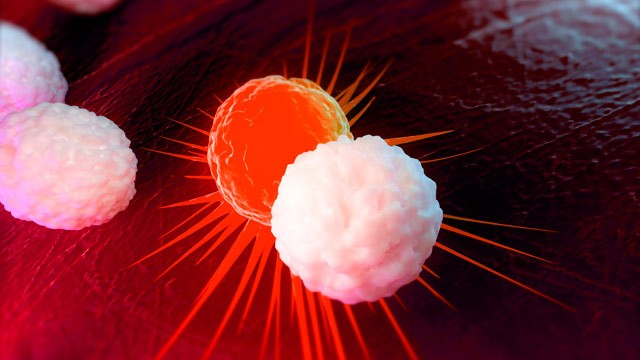A SINGLE injection could end the misery of arthritis pain and protect joints from a ... Not only does the wonder therapy stop the destruction of the joint, ... said: “There are some indications that gene therapies could lead to new ...
Most people who live to old age will suffer from arthritis. The condition’s prevalence is growing alongside a graying world population.
However the only treatments at the moment address the symptoms rather than the cause—the loss of cartilage in joints. Joint replacement is a last-ditch solution for some sufferers. Now a gene therapy approach has demonstrated promise in staving off arthritis in mice, opening the door to human testing.
The inspiration for the research came from studying children with a genetic form of arthritis that strikes early. These children are deficient in the gene for a protein called lubricin. Lubricin is thought to act as a lubricant between the bones in a joint.
Since a lack of lubricin caused arthritis, researchers thought perhaps additional lubricin could stave it off.

They tested this hypothesis by creating a strain of mice with an additional lubricin gene in their DNA. When these mice suffered an injury to their knees they didn’t develop injury-induced arthritis. Inspection of the mice’s joints found that their cartilage resembled mice who’d never been injured in the first place. Non-modified mice, on the other hand, had symptoms of arthritis just a month after injury.
What’s more, as the mice that made extra lubricin aged, their cartilage stayed youthful. That suggests the protein may protect against both common forms of arthritis: injury-related and age-related.
The treatment also works if the replacement genes are injected right into the joint itself, the researchers report in Science Translational Medicine today. Its delivery to human patients, then, could be similar to the injection of joint lubricants that some arthritis sufferers currently rely on.
However no gene therapies are currently approved by the FDA for human treatment, so this research will likely stay in the lab for some time yet.
And, importantly, the gene therapy just staves off cartilage loss; it doesn’t regenerate lost cartilage. But the treatment could be a promising option for preventing the onset of arthritis in early stages of the disease or after injury.

Most people who live to old age will suffer from arthritis. The condition’s prevalence is growing alongside a graying world population.
However the only treatments at the moment address the symptoms rather than the cause—the loss of cartilage in joints. Joint replacement is a last-ditch solution for some sufferers. Now a gene therapy approach has demonstrated promise in staving off arthritis in mice, opening the door to human testing.
The inspiration for the research came from studying children with a genetic form of arthritis that strikes early. These children are deficient in the gene for a protein called lubricin. Lubricin is thought to act as a lubricant between the bones in a joint.
Since a lack of lubricin caused arthritis, researchers thought perhaps additional lubricin could stave it off.

They tested this hypothesis by creating a strain of mice with an additional lubricin gene in their DNA. When these mice suffered an injury to their knees they didn’t develop injury-induced arthritis. Inspection of the mice’s joints found that their cartilage resembled mice who’d never been injured in the first place. Non-modified mice, on the other hand, had symptoms of arthritis just a month after injury.
What’s more, as the mice that made extra lubricin aged, their cartilage stayed youthful. That suggests the protein may protect against both common forms of arthritis: injury-related and age-related.
The treatment also works if the replacement genes are injected right into the joint itself, the researchers report in Science Translational Medicine today. Its delivery to human patients, then, could be similar to the injection of joint lubricants that some arthritis sufferers currently rely on.
However no gene therapies are currently approved by the FDA for human treatment, so this research will likely stay in the lab for some time yet.
And, importantly, the gene therapy just staves off cartilage loss; it doesn’t regenerate lost cartilage. But the treatment could be a promising option for preventing the onset of arthritis in early stages of the disease or after injury.
No comments:
Post a Comment